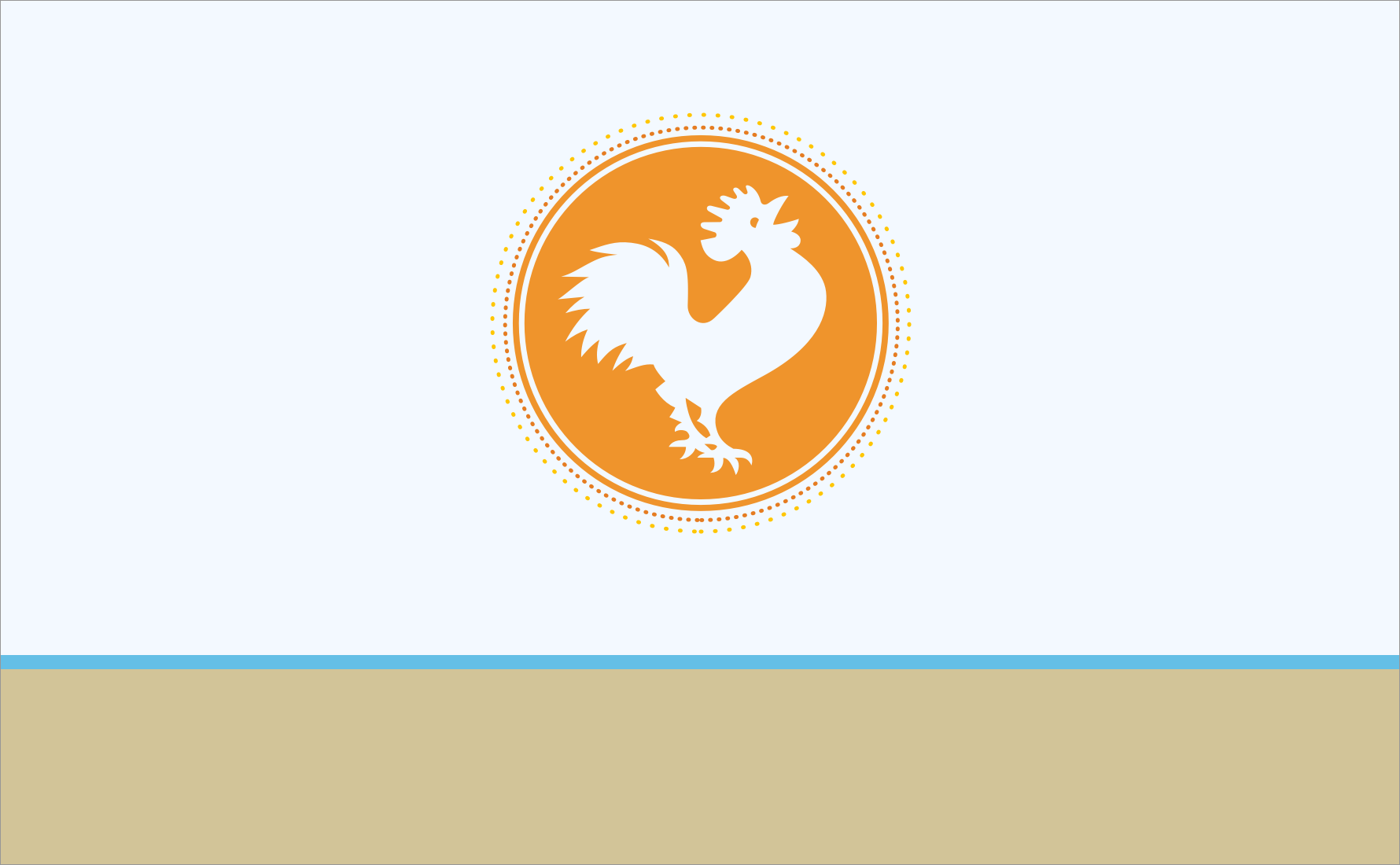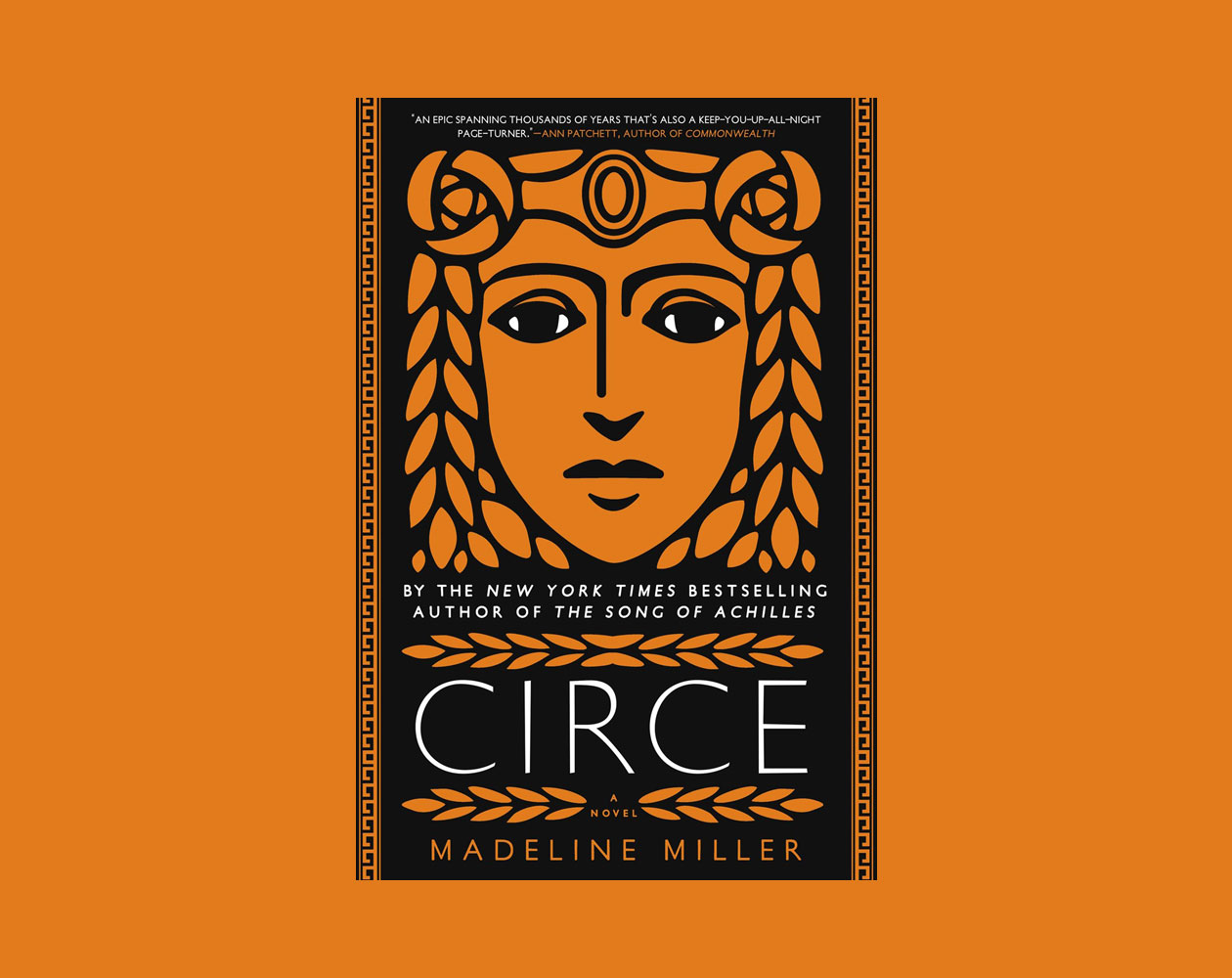Welcome to the 2018 Rooster Summer Reading Challenge. We’ve selected six Rooster-worthy works of fiction from 2018 to read through August—two per month—and once a week we meet here to discuss our reading progress.
Each month we’re joined by a new judge, who discusses the books with us and then selects which of that month’s two books heads to our summer finale—where you, the readers, decide which novel wins the 2018 Rooster Summer Reading Challenge and an automatic berth in the 2019 Tournament of Books.
(Which kinda counts for a lot, seeing how our 2017 summer winner, Fever Dream, stampeded through the 2018 ToB, eventually taking home the Rooster. By the way, if all of this is new to you, check out this Rooster primer.)
To select our summer books, each of our judges chose a work of fiction they were particularly excited about this year. The other three books were selected by the ToB Committee according to our normal criteria—novels first published in English in the calendar year that we feel are excellent and interesting. (To avoid conflicts, none of the judges were assigned the books they selected personally.)
A special thanks to our Sustaining Members for making another year of the Rooster Summer Reading Challenge possible. Find out why The Morning News and the Tournament of Books depend on your support, and please consider becoming a Sustaining Member or making a one-time donation.
This month we’re reading Circe by Madeline Miller and Census by Jesse Ball, with Kelly McEvers and Nathan Deuel.
- See the reading list and discussion schedule
- Catch up on previous chats: Tomb Song (first half, second half), American Marriage (first half, second half), Circe (first half)
- Jump into today’s discussion in the comments
Please note: We receive a cut from purchases made through the book links in this article.
Andrew Womack: So, the ending—wow.
But before we get to that, here’s what happened in the second half of Circe, in short order. Odysseus and Circe strike up a relationship, then he eventually leaves Circe’s island of Aeaea to head back to his home island of Ithaca and his wife and son, Penelope and Telemachus. However, upon his departure he is unaware Circe is pregnant with their son, Telegonus. Years later, Telegonus yearns to meet his father, and sets sail for Ithaca in search of him. Telegonus eventually returns to Aeaea—with Odysseus’s wife and son, Penelope and Telemachus—and we learn that upon arriving on Ithaca, Telegonus accidentally kills Odysseus. Circe suspects Telemachus and/or Penelope want to kill Telegonus in order to avenge Odysseus. Except, as it turns out, they’re lovely people who maybe aren’t the biggest Odysseus fans—unlike Athena, who without Odysseus around to do her bidding, shows up on Aeaea because she wants Telemachus to build her a city in Italy. He declines, so she asks Telegonus if he wants the job, which he does, and so he leaves and then Circe and Telemachus fall in love and depart Aeaea, leaving behind Penelope, who begins training to become a witch like Circe. Telemachus and Circe travel to Scylla’s island, kill her, tying up that loose end, and then Circe locates the flowers she used at the beginning of the book to transform Glaucus into a god.
So then, we reach the final chapter of Circe, where she imagines what her future with Telemachus might be like, and—let me just say—I love the pacing of this last section and how Miller drops in these slight hints of Circe’s intention to use those flowers to change herself into a mortal, but letting us figure it out, and not drawing it out too long, and then: “I lift the brimming bowl to my lips and drink.” Yes! OK, what do you think happens next?
Nathan Deuel: I was super pissed at the ending. I wanted it to end badly, for the wrathful ones like Helios high above to render their cruel judgment. I loved Circe and I yearned for her to live well, but looming always was my total confidence that darkness and punishment would be her due. Sigh.
Andrew: But let me ask—what do you think happens? Could it perhaps end badly? We’re left to wonder, aren’t we? (Though I’ll say my sense is the same, that it feels like it’s going to end happily for her.)
Kelly McEvers: We are left to wonder, as she hints at that one last thing to do and paints the picture of what could happen with Telemachus. But that picture is so vivid and so detailed that it crowds out other possibilities, no?
Andrew: Yeah, I think so.
In the house of Helios, god of the sun and mightiest of the Titans, a daughter is born. But Circe is a strange child—not powerful, like her father Helois, nor viciously alluring like her mother. Turning to the world of mortals for companionship, she discovers that she does possess power—the power of witchcraft. Threatened, Zeus banishes her to a deserted island, where she crosses paths with many of the most famous figures in all of mythology, including the Minotaur, Daedalus and his doomed son Icarus, the murderous Medea, and, of course, wily Odysseus. (Amazon / IndieBound / Powell’s)
Book description excerpted from publisher’s summary and edited for length.
Kelly: Unlike Nathan, I was not hoping for death and destruction. But I was thinking, still, about her mortality. Is she just imagining another chapter in this endless life? Has she traded it all in for travel and domesticity? Even the punishment of losing Telegonus is not so harsh for her in the end. Will she not know consequences for her own actions?
Andrew: I’m going to say I don’t think she does. She’s still a goddess, and that alone seems to get you out of trouble most of the time. Perhaps her mortality will bring with it a sense of remorse? I mean, you have to leave something for the sequel, right?
Something we get in Circe that we don’t get in the mythology is we find out Telemachus’s inner workings. I love how Miller built him out as a character. No longer is he just this son who helps dad kill mom’s suitors—as one does—but he’s a victim of his father’s psychological abuse. A lot of the attention this book is getting has been around upending the patriarchal nature of these myths, and where that might seem like it’s mainly about Circe and what she endures, it’s also about the children of these patriarchal figures, and what that inflicts upon them as well.
Nathan: Telemachus felt like such a real character to me, partially for how his physical being and temperament compared to Telegonus, the latter of whom kind of reminds me of this big lug of a guy I sometimes surf Malibu with. Miller did an excellent job, I think, slowly drawing out the former’s character, from our early concern for his intentions, when he and his mom show up, then our dawning knowledge of his burdens and guilt, and of course the heroic moment when he surprises us and Athena when he responds to her heavenly offer.
Andrew: Agreed. I really liked how we weren’t sure where that was going. That was a nailbiter for me.
Kelly: I love how the camera sits on him for so much of the last part of the book—and how we are left to wonder. So many times Miller talks about that knife hanging at his waist, we are left to doubt whether he really did suffer Odysseus or is it just a ruse. As we slowly learn the truth—and come to believe it—it is more powerful than if that story had been told outright. If you’re going to knock down the patriarchy, let’s hope you can unspool it as authentically as Miller did here.
Andrew: The second half of the book really does bring the suspense. Where the first half was a whirlwind tour of mythology, the second was definitely more cinematic and character-driven. I loved the first half, but the second half is where Circe shines.
Something I notice a lot in this summer format, where we break up the book into halves for readalong purposes, is how similar or different the two parts can feel, and I felt like the action of the second half slowed to about half-speed. Where the first half was a whirlwind with multiple characters rushing across the stage, the second half gave us time to explore the characters more in-depth. I thought it was a really smart change of pace—did you notice it at all?
The Infinity Rooster finds its way to your beach chair, with a towel you could spot from the breakers. New batches print every three days—order yours now. As a reminder, Sustaining Members receive 50 percent off everything at the TMN Store. To find out why we’re asking for your support and how you can become a Sustaining Member, please visit our Membership page.
Nathan: I really devoured the first half but struggled to finish the second half. It was partially a function of real world obligations—camping! Surfing! Parties! Grading papers!—but also the way in which the second half slowed down to render so fully and with nuance these lazy, electrifying days with the arrival of Penelope and Telemachus. Honestly, given the ending, my enthusiasm for the book has cooled a bit. Part of my thrill with the first half was the way the gods and mortals seemed to be enduring the same sort of hell it sometimes feels like we’re enduring. I sought advice and council. I don’t, looking to our immediate future, expect an outcome as rosy as Circe’s seems to be.
Kelly: Funny, I of course think the opposite. I had such a problem with the cavalcade of gods and episodes in the first half that I really appreciated the pace of the second half. Yes, Telegonus remained a lug, as Nathan called him. But the surprising way the relationships between the other characters unfolded definitely kept me turning pages. Still, at the end of the book I found myself wondering what was it all for? If you are going to rebuild the gods, as Miller has done, and tear down the patriarchy in these wonderful and subtle ways, I wish I had been left with more than the picture of a mother/wife on her way to a really nice holiday in Egypt.
Andrew: I just laughed so hard I knocked over my bowl of raw wine.
Let’s get back to Telemachus. At the heart of Miller’s story of Odysseus and Telemachus is each’s sense of right and wrong, which show up in their respective lines, “the world is an unjust place” (Odysseus) and “to insist upon your son’s fault would be unjust” (Telemachus). The way I read it, at least, is that Odysseus is complacent and reluctant to change, where Telemachus is evolved and, as we later see, may embark on a journey with Circe to help bring about further positive change (“the simple mending of the world”). What did you get from it?
Nathan: I was really moved by this line, when Circe is trying to describe her lover and his father to Telemachus: “Every petty defect of the world enraged him, all the waste and stupidity and slowness of men, and all the irritants of nature, too, biting flies and warping wood and the briars that ripped his cloak.”
I myself have never sacked a town, spilled a man’s blood, or led brave people into battle, but I’ve been enraged by various things, such as Google Docs and the way people drive in Santa Monica, and at the same time, I’ve also made choices in my life, such as when I have in my own way turned away from glory—not Athena-level kingdom and power—but nonetheless, moments when instead of being enraged or seeking more, I chose a quieter path. As such, I enjoyed trying to find myself somewhere between these two men. Interestingly, a really excellent woman loves them both.
Kelly: Odysseus has undiagnosed PTSD. And culture shock. I know this guy, all too well. You come back from the war, and nothing will ever be as vivid or as beautiful as fighting and dying for what you believe is just and right. Of course he is unbending. He thought he was going away for a few years, and he ended up giving away most of his life to a world where only the most shrewd survive. How could one waste a single second on anything but staying alive, minute to minute? With a very good therapist, he might have figured out how to live in the world—and maybe watch that biting fly buzz away into the afternoon.
Andrew: The point about PTSD is really interesting and, for me at least, an angle I hadn’t explored at all. Miller does seem to make him a mostly unsympathetic character, and as soon as he’s out of the picture my sympathies, at least, switched over almost entirely to everyone he left in his wake.
But you’re right: He doesn’t get the chance to change, which is ironic in a book all about change. Throw a spear and you’ll hit it in this book. Circe is known as an agent of change. But also: Let’s change these myths. And of course, she may or may not change at the book’s conclusion, but this segment—upon reaching land after she and Telemachus kill Scylla—was a beautiful phrasing of this idea of change:
I passed a pear tree drifted with white blossoms. A fish splashed in the moonlit river. With every step I felt lighter. An emotion was swelling in my throat. It took me a moment to recognize what it was. I had been old and stern for so long, carved with regrets and years like a monolith. But that was only a shape I had been poured into. I did not have to keep it.
I also thought Miller’s take on Penelope was an overt, inspiring way of addressing what she’s doing—and why—to the mythology: “Loyal, songs called her later. Faithful and true and prudent. Such passive, pale words for what she was.”
Kelly: “I had been old and stern for so long.” Had she? I found this passage unconvincing. I know I am hung up on immortality, but in her episodic life, isn’t change all there is? Why is she only getting wrinkles now that she’s hundreds of years old? I know I’m being too literal about this. But I’m just not sure that yet another mortal lover will remake her shape—especially one as taciturn and matter-of-fact as this one. As for Penelope, and the acknowledgment of her later “story,” well that struck me as just great. That and the fact that Miller let these two become tacit allies rather than desperate housewives.
Nathan: I love the way the book is also about stories. The way you can live in a way that makes for a good story, but the way you can become trapped by that burden and the pressure, to be excellent, to win, to slay. That’s what haunted Odysseus. And it was a canny knowledge or self-knowledge perhaps that allowed his son Telemachus to step away, to sense a really excellent story forming and realize that being boring might have a quieter but equal and different brilliance.
Andrew: But the poets do not sing songs of the boring! I mean, but if they did, then that would really be turning mythology upside down—you may be onto something there.
One final question: What’d you think of Circe overall?
Nathan: I’m glad I read the book. Had I encountered a review in the New York Times, once I saw that Circe was a sort of update on various mythologies and heroes, I’m confident I wouldn’t have given a book like this a second thought. But man am I glad I did! Circe and her father and the various members of her clan were, in the beginning, alarming and upsetting for the way they portrayed how we are all inclined to treat one another, which is often quite badly. I found myself thinking, Yes, this is us and we are them! By the time our main character was banished to the island, however, I had grown to care less about the way this reflected America in 2018 and instead I cared for her rather deeply. I wanted Circe to win, whatever that might mean, and as she became more and more comfortable with her powers, to love and be loved, to have a child and experience true adulthood, I found msyelf tingling with the possibilities. Did I love the ending? No, I did not. But like all the best books I’ve ever read, this one has, I think, altered in some good and permanent way how I think of myself and our place in this weird world. Thanks, Circe!
Kelly: I am not glad I read this book. Because I did not know enough about how much Miller was twisting the original stories, there just wasn’t much fun in it. Imagine if, at every turn, you aren’t like, “Wow, check out what she did there!” Like, without the antecedent, how good is this story, really? This raises questions about how accessible this book is—and leaves me wondering if it is, in the end, part of a genre rather than a thing unto itself.
Andrew: Thank you both so much for all your thoughts on Circe. I feel like we’ve covered a real gamut of reader reactions with this one. And with that, we’re halfway through our July matchup—and our summer reading. Next week, we’ll discuss the first half of Census by Jesse Ball. See you then!





